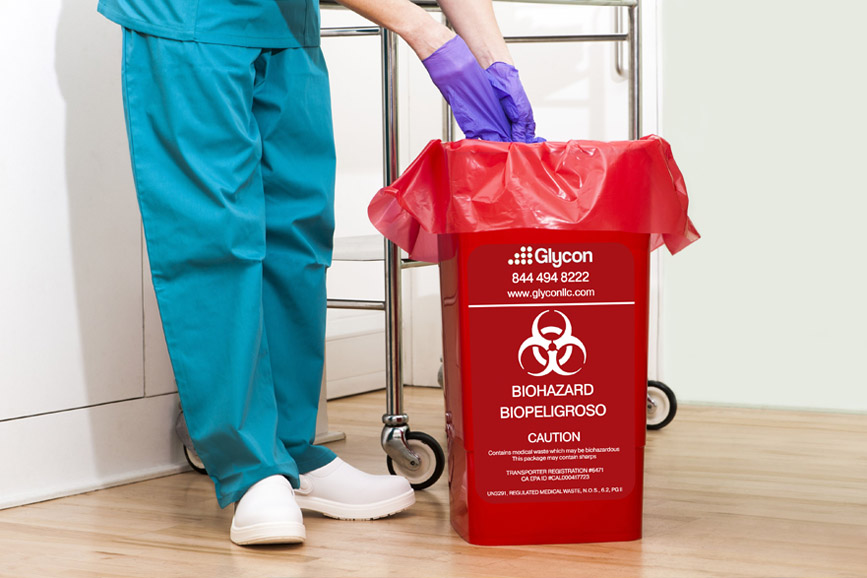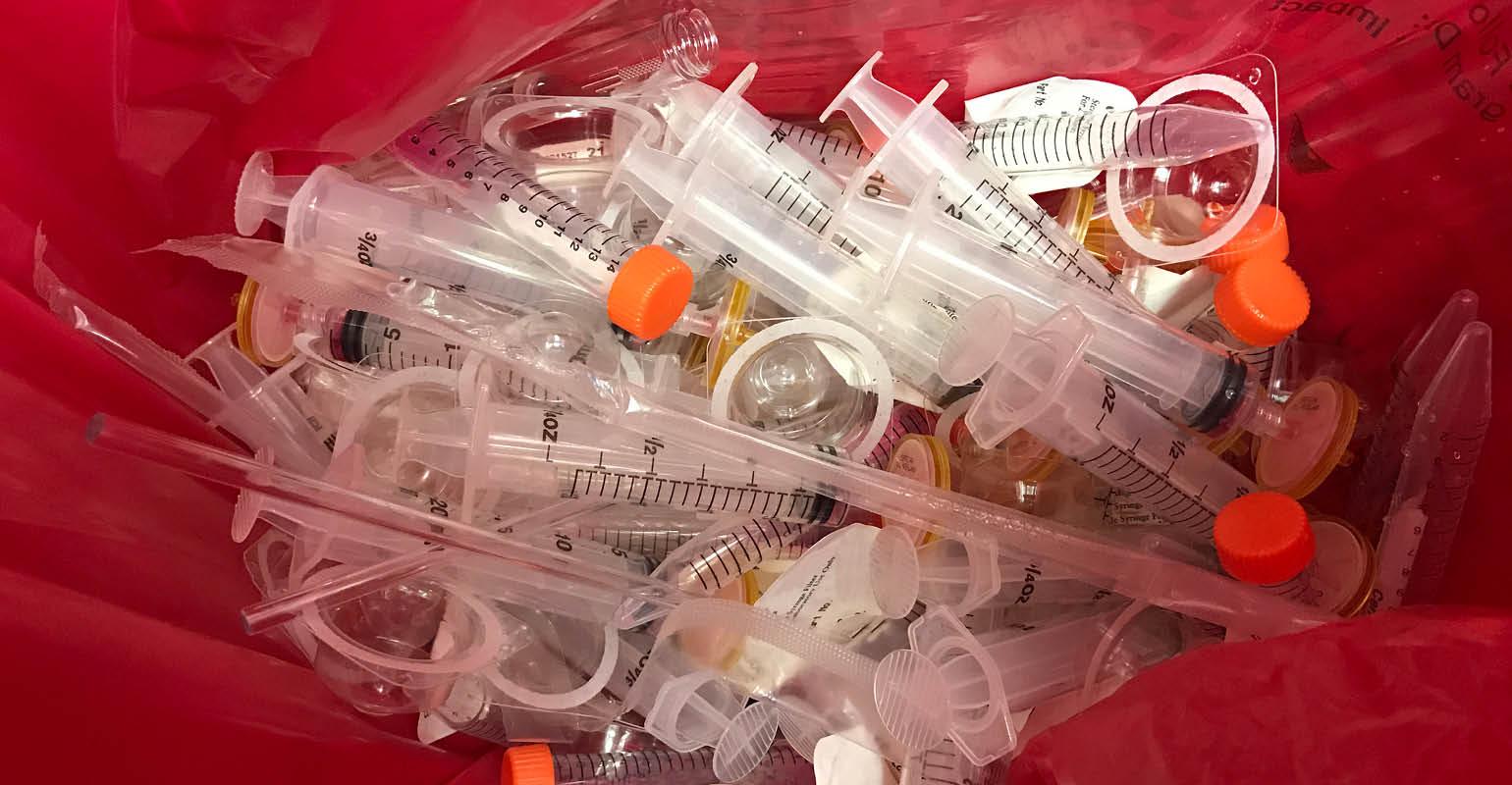Defending Well-Being: Unveiling the Essence of Specialist Medical Waste Removal
Defending Well-Being: Unveiling the Essence of Specialist Medical Waste Removal
Blog Article
Remain Ahead of Rules: Expert Guidance on Medical Garbage Disposal
In a globe where the healthcare industry is regularly evolving, it is imperative for medical facilities to stay in advance of regulations when it concerns the appropriate disposal of clinical waste. With rigid guidelines and frequent regulative modifications, it can be challenging to navigate the complexities of this process. Nevertheless, with skilled suggestions, centers can make certain conformity and mitigate risks connected with improper waste disposal. From understanding the different categories of clinical waste to applying the best collection and segregation methods, this conversation will certainly supply workable suggestions and important insights to assist facilities remain in advance of policies in the ever-changing landscape of medical waste disposal.
Comprehending Medical Waste Categories
Understanding medical waste groups is necessary for proper disposal and monitoring in medical care facilities. Clinical waste refers to any type of waste created by health care tasks that may present a threat to public health and wellness or the setting. It is crucial to classify medical waste precisely to guarantee its safe handling, transportation, treatment, and disposal.
There are several groups of medical waste that medical care facilities need to be acquainted with. One of the most common categories include contagious waste, pathological waste, sharps waste, pharmaceutical waste, and chemical waste. Each group has specific standards and policies for its correct monitoring and disposal.
Contagious waste includes materials polluted with blood or other bodily liquids, such as handwear covers, dress, and lab societies. Pathological waste describes human cells, organs, or body parts that need special delivery and disposal. Sharps waste includes used needles, syringes, and other sharp objects that can trigger injury and transmit infections. Pharmaceutical waste comprises ended, unused, or polluted medications that require careful handling and disposal. Chemical waste consists of solvents, anti-bacterials, and various other chemical substances made use of in medical care centers.
Staying Up-To-Date With Regulatory Adjustments
Remaining present with regulative changes is vital for medical care facilities to make certain conformity and appropriate management of medical waste disposal. medical waste removal. With regulations frequently advancing, it is necessary for medical care centers to stay current to prevent penalties, fines, and potential injury to the atmosphere and public health
To remain ahead of regulative modifications, healthcare centers ought to develop a system for tracking and monitoring updates. This can be done by subscribing to regulative newsletters, participating in seminars and workshops, and proactively joining industry associations. Additionally, centers should mark a team member or group responsible for remaining educated and sharing information to pertinent stakeholders.
Regular interaction with regulatory companies is additionally essential. Medical care facilities must develop connections with regional, state, and government agencies to guarantee they understand any type of adjustments in guidelines that may affect their waste monitoring practices. This can be done through routine meetings, engagement in public comment periods, and positive involvement with regulatory companies.
In addition, health care centers must think about partnering with waste monitoring companies that specialize in medical garbage disposal (medical waste disposal services with WasteX). These business are usually skilled in the most recent policies and can supply advice and assistance to ensure compliance
Carrying Out Correct Collection and Segregation Methods
To effectively manage clinical garbage disposal, medical care centers have to develop correct collection and partition methods in accordance with regulatory guidelines. Executing these methods guarantees the risk-free handling and disposal of possibly harmful materials, secures the atmosphere, and reduces the danger of injuries and infections to medical care employees and the basic public.
Appropriate collection and segregation methods involve making use of assigned containers and identifying systems. Health care facilities should provide plainly classified containers for various kinds of medical waste, such as sharps, infectious waste, pharmaceutical waste, and non-hazardous waste. These containers need to be color-coded and plainly significant to prevent confusion and advertise simple identification.
Additionally, healthcare facilities need to educate their staff on the correct treatments for accumulating and setting apart clinical waste. This consists of informing them on the various kinds of waste, the ideal containers to utilize, and the significance of following regulations and standards. Routine training sessions and refresher training courses must be conducted to make certain that team member continue to be updated on best techniques.
Additionally, healthcare facilities should develop a system for routine collection and disposal of clinical waste. This may entail partnering with accredited waste administration companies that concentrate on medical garbage disposal. These companies will certainly ensure that the accumulated waste her comment is here is delivered and gotten rid of in conformity with regulative needs.
Choosing the Right Disposal Techniques

Incineration is among the most typical and reliable techniques for taking care of certain kinds of medical waste, such as pathological waste and sharps. It includes the controlled combustion of waste at heats, minimizing it to ash. Nonetheless, incineration can launch harmful pollutants right into the air and contribute to air pollution.

Other disposal methods consist of chemical treatment, microwave therapy, and landfilling. Chemical treatment includes making use of chemicals to neutralize the waste and disinfect. Microwave therapy utilizes microwave energy to warmth and sanitize the waste. Landfilling involves hiding the waste in a designated garbage dump area (medical waste disposal services with WasteX). However, landfilling must be the last option as a result of the potential risk of contamination to soil and groundwater.
Making Sure Conformity Via Documentation and Training
After carefully thinking about the ideal disposal approaches for clinical waste, medical care centers have to make certain conformity with laws and decrease ecological influence by applying reliable paperwork and training procedures. This step is essential in maintaining a risk-free and sustainable setting for both health care workers and the general public.

Medical care employees that take care of clinical waste should receive suitable training on waste segregation, dealing with, and disposal procedures. By providing comprehensive training, healthcare facilities can empower their staff to make informed choices and decrease the threat of incorrect waste disposal.
Final Thought
In conclusion, staying ahead of regulations in clinical garbage disposal is vital for health care centers. medical waste removal service. Comprehending Read Full Article the different groups of clinical waste, staying updated with governing adjustments, applying correct collection and segregation methods, picking the ideal disposal techniques, and guaranteeing compliance through documents and training are all necessary steps. By adhering to these standards, healthcare companies can successfully handle and dispose of clinical waste in a safe and liable way
From understanding the different categories of clinical waste to executing the ideal collection and partition techniques, this conversation will give workable suggestions and find here useful insights to assist centers stay in advance of regulations in the ever-changing landscape of clinical waste disposal. - medical waste disposal services with WasteX
The most typical groups consist of transmittable waste, pathological waste, sharps waste, pharmaceutical waste, and chemical waste. Healthcare facilities ought to give plainly classified containers for various kinds of clinical waste, such as sharps, transmittable waste, pharmaceutical waste, and non-hazardous waste. Medical care centers must develop a thorough system to videotape and track all facets of clinical waste disposal, consisting of kinds of waste produced, amounts, and disposal approaches made use of. Medical care employees who deal with medical waste should receive suitable training on waste segregation, handling, and disposal procedures.
Report this page